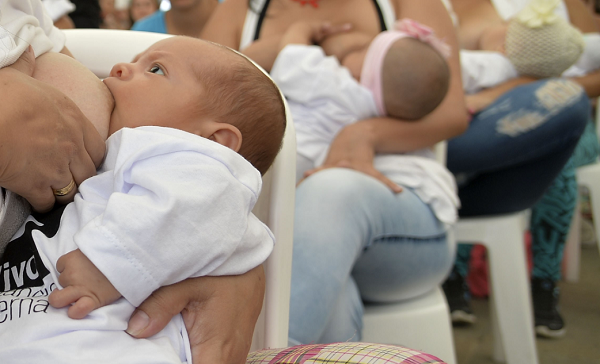How Important Is Breastfeeding An Hour After Birth? 6 Facts Revealed In New UNICEF Study

Breastfeeding is the most traditional way mothers feed their children, but more than 77 million babies are not breastfed within the first hour of birth, according to a new study conducted by United Nations Children's Fund (UNICEF). That can lead to detrimental health effects and even decrease the chances of an infant’s survival.
Children who are breastfed within their first hour of life get important antibodies and nutrients passed on through their mother’s breast milk, Tech Times reported. These natural nutrients alone can sometimes be the difference between life and death for a baby.
Here are a few interesting facts and stats highlighting the importance of breastfeeding within the first hour of a child’s life:
1. According to United Nations agency, babies who aren’t fed with breast milk within their first two to 23 hours of birth are 40 percent more likely to die within their first 28 days of life. If a child is not fed with breast milk within the first 24 hours of birth, their likelihood of survival decreases 80 percent.
2. Senior nutrition adviser to UNICEF France Bégin revealed approximately 800,000 babies a year could be saved simply from being exclusively fed breast milk from the moment they are born.
3. Not only can breastfeeding within the first hour of birth increase a baby’s chances of survival, but failing to provide children with breast milk right away can limit their milk supply and daily intake.
4. Although 43 percent of infants six months old and younger are given breast milk globally, nearly half of all newborns in the world are fed with alternatives including infant formula, sugar water and cow’s milk. Breast milk is rich in vitamins, minerals, proteins and fats that can be mimicked in certain formulas, but supplemental milk does not carry the many antibodies, living cells, enzymes and hormones necessary for fighting infections and sickness that could potentially lead to infant death.
5. One of the many reasons UNICEF believes infants aren’t being breastfed in the proper time frame is because of lack of breastfeeding support. Many mothers – especially in North Africa, South Asia and the Middle East – aren’t made aware of the importance of breastfeeding within the first hour of a child’s life.
6. The UN agency estimated infants who don’t receive breast milk at all are 14 times more likely to die than those who are given breast milk exclusively. Babies who don’t receive breast milk at all are also seven times more likely to die from infections and illnesses compared to those who are given a small amount of breast milk within the first six months of life.
© Copyright IBTimes 2024. All rights reserved.






















